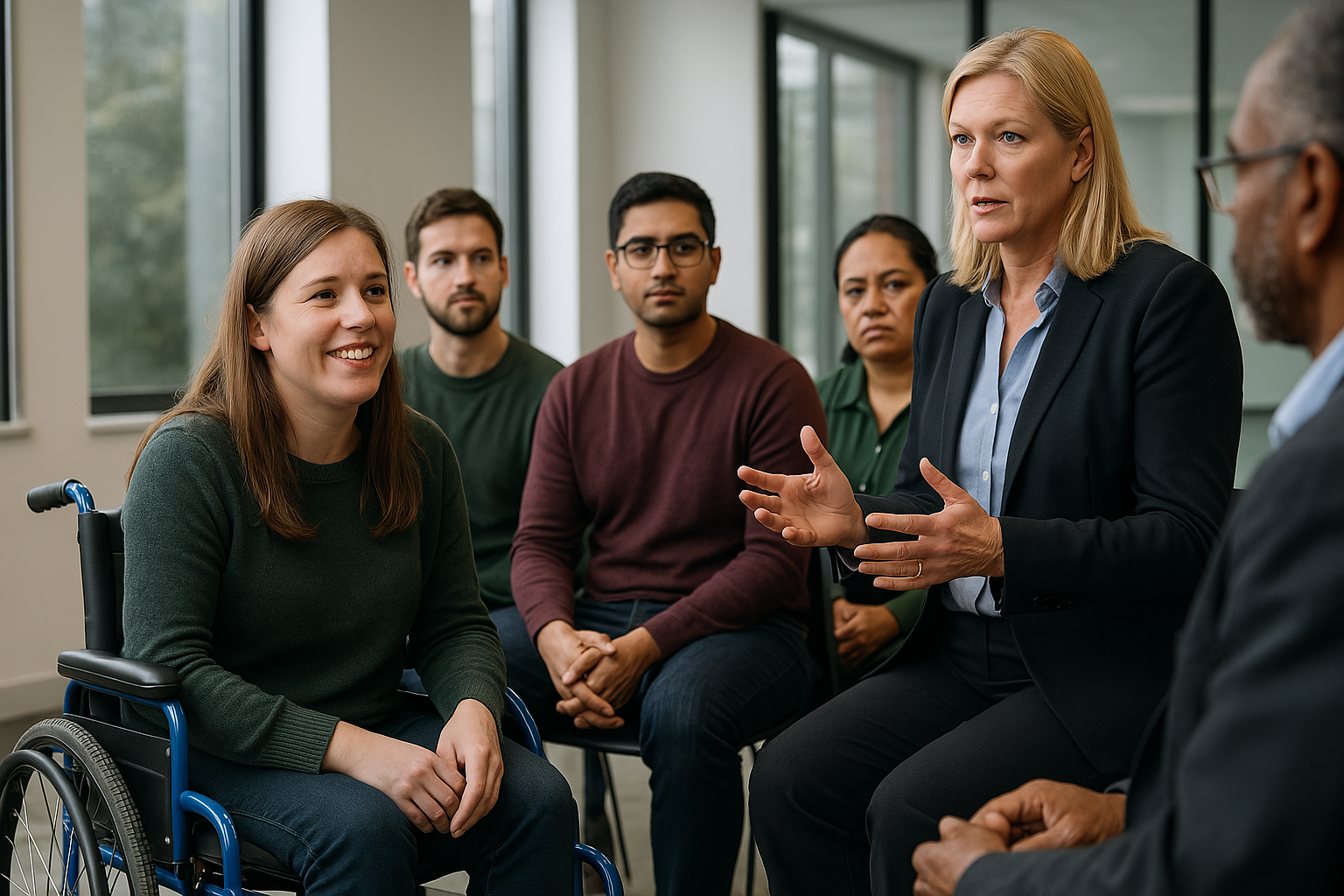NZ Launches Bold Strategy Refresh to Advance Rights of Disabled Citizens
“The co-design process is a real game changer. Disabled people will be at the center of developing the actions that affect their lives,” Upston said.

- Country:
- New Zealand
In a major policy initiative aimed at improving the lives of disabled New Zealanders, Disability Issues Minister Louise Upston has announced a significant refresh of the country’s national disability strategy. The refreshed strategy will take a new and inclusive approach, with a stronger focus on practical actions and community-led development.
The current disability strategy, which spans a decade and concludes in 2026, has laid a foundational framework for advancing the rights of disabled people. While it has provided direction for government and community work, Minister Upston acknowledged that progress has been uneven across key areas such as education, employment, housing, health, and justice.
“While the strategy has helped shape our efforts for the last 10 years, there is clearly more to be done. Too many disabled people still face barriers in their daily lives. We must do better, and that starts with a new way of working,” she said.
Community-Driven and Co-Designed
What makes this refresh stand out is its collaborative model. For the first time, New Zealand will co-design its national disability strategy with working groups made up of disabled people, industry stakeholders, and government agencies. These groups will be tasked with identifying key areas for change and creating practical, actionable recommendations.
“The co-design process is a real game changer. Disabled people will be at the center of developing the actions that affect their lives,” Upston said.
Once these working groups have developed a draft strategy, the wider disabled community will be invited to review it and provide feedback, ensuring it reflects a broad range of perspectives and lived experiences. The final strategy will be implemented over five years, focusing on targeted areas where meaningful change can be made.
High Public Interest and Engagement
The Ministry for Disabled People – Whaikaha – will lead the refresh process and has already seen significant interest, with nearly 350 expressions of interest from disabled individuals wanting to be involved in the strategy’s development.
“This level of engagement is inspiring,” said Upston. “It shows how much passion there is within the community to make real and lasting change.”
The 2023 Stats NZ Household Disability Survey highlighted the pressing need for action, revealing that 1 in 6 New Zealanders identify as disabled. Many face systemic challenges across a variety of sectors, particularly in gaining access to quality education, stable housing, meaningful employment, and equitable healthcare.
One particularly concerning finding: three-quarters of unemployed disabled individuals say they want to work. This underscores the importance of employment as a major focus area in the refreshed strategy.
Focusing on Opportunity and Inclusion
Minister Upston emphasized that the strategy will not only aim to address persistent inequities but will also be a platform for empowerment and inclusion.
“Disabled people, just like non-disabled people, want to participate in their communities, to thrive, to be independent, and to make decisions about their own lives,” she said. “There are challenges ahead, but there are also incredible opportunities. With this strategy, we aim to unlock those opportunities and ensure every New Zealander has the chance to live a full and dignified life.”
Looking Ahead
The refreshed strategy will serve as a five-year blueprint and will guide government departments, community organizations, and businesses in how they support and uphold the rights of disabled people in New Zealand.
As the process moves forward, the government has committed to ongoing engagement, transparency, and a focus on outcomes. The hope is that this new strategy will create real momentum for change—one that not only reflects the needs of disabled New Zealanders but also actively involves them in shaping the country’s future.
The final version of the strategy is expected to be released before the end of 2026, paving the way for implementation in 2027.
- READ MORE ON:
- Louise Upston
- disability strategy










